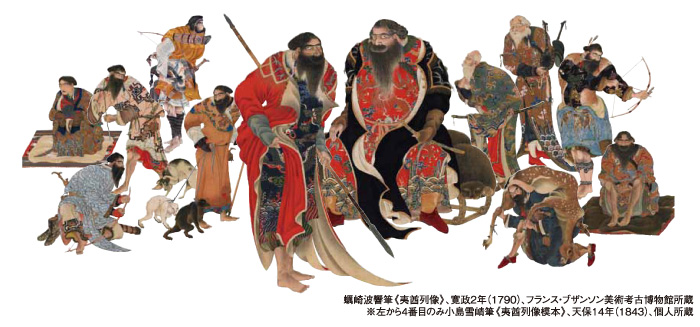Ishuretsuzo, the Image of Ezo: Tracing Persons, Things and the World | Introduction

Introduction
"Ishuretsuzo", a series of twelve portraits of leading Ainu figures clothed in vivid, elaborately-decorated traditional fabric, was painted in 1790 by samurai and artist Hakyo Kakizaki of the Matsumae domain. The series was praised by the Emperor and feudal lords of the time and was subsequently hand-copied many times. This exhibition brings together the original Ishuretsuzo works by Hakyo Kakizaki housed at the Besançon Museum of Fine Arts and Archaeology in France, as well as reproductions and related works from around Japan. Highlighting the interactions of people, exchanges of materials, and influences of the outside "world" that began to grow in Japan, this exhibition explores images from 18th-century "Ezochi" to the present "Hokkaido".






